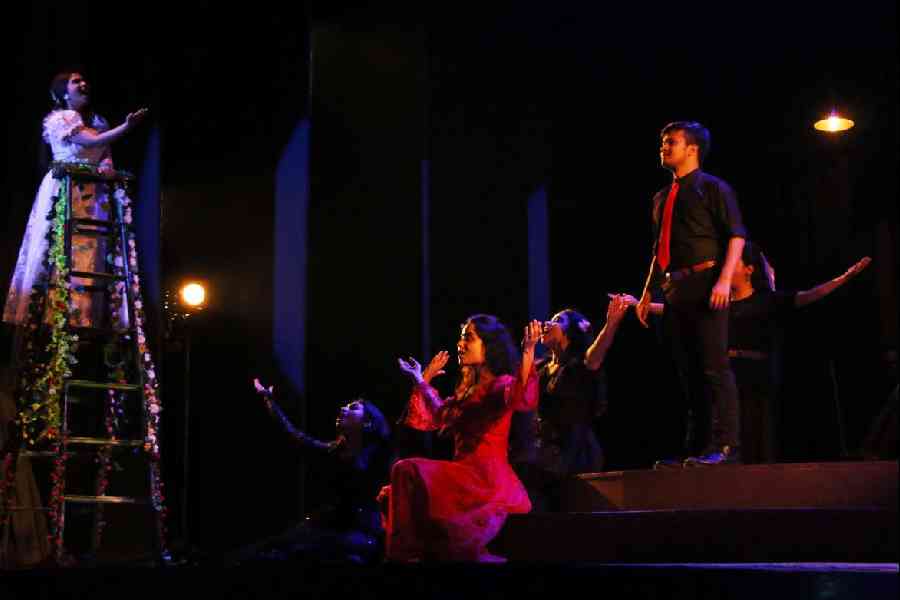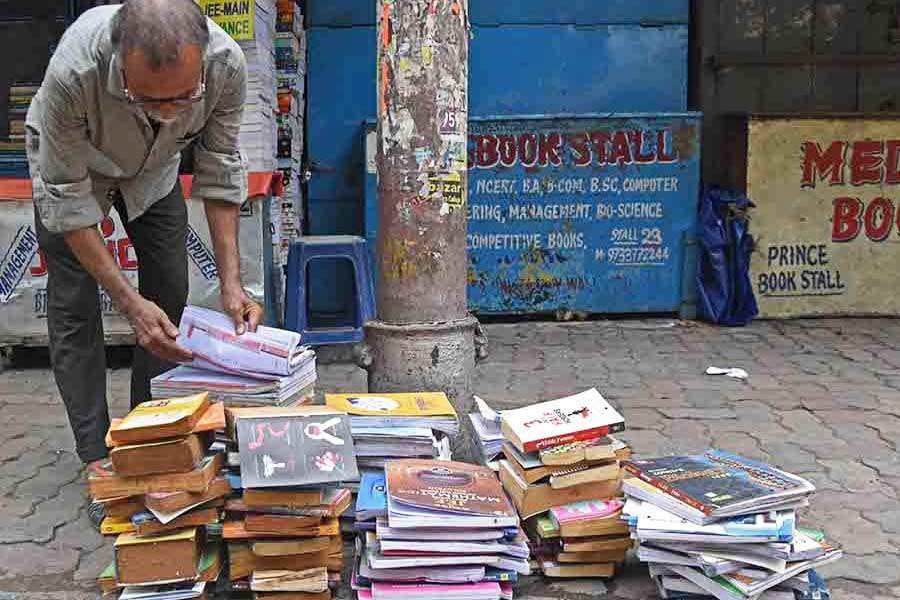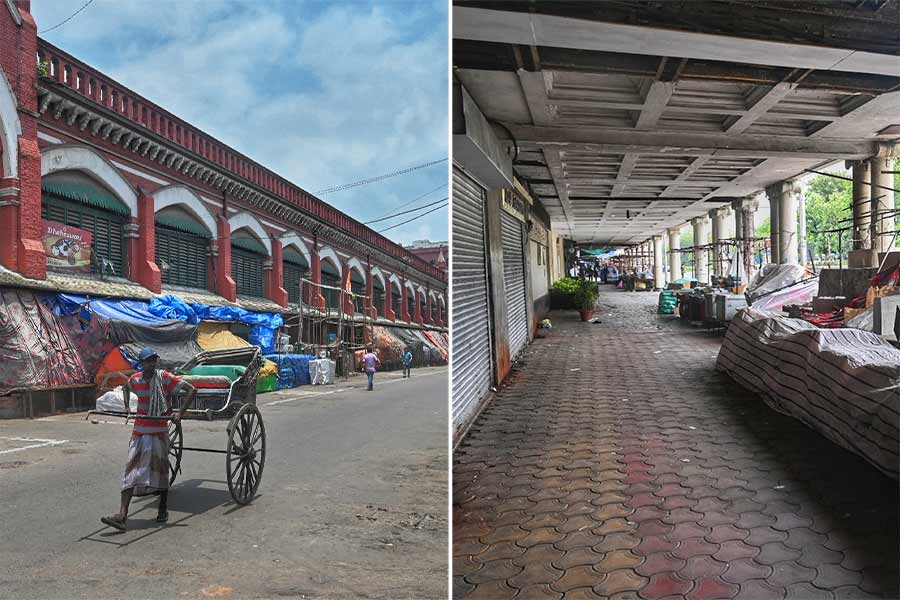William Shakespeare’s Romeo and Juliet remains one of the most beautiful stories ever told. Not because of the tragic romance, but what it says about the society at that time and how it remains relevant to this day. In Anya Theatre’s new production of Romeo and Juliet, director Abanti Chakraborty masterfully blended the story with the Czechoslovakian novel Romeo, Juliet and Darkness by Jan Otcenasek to deliver a new version of stage production.
It confronts historically an extreme truth... that throughout the ages we’re still not free enough to be compatible with authoritarian society. The feuds between the Montagues and Capulets can be easily replaced by the modern political spectrum — two countries, two races, two religions, and so on. The world of the play is an imperfect place, where freedom from everything but pure love is an unrealistic goal. Debesh Roy’s lyrical translation effortlessly captures the essence of the play, where love is in the air with the clang of swords. The rendition of Tagore’s Eki labonye purno prano creates a magical ambiance on the stage with the help of great musical collaboration.
Subhadeep Guha, take a bow for your unique score along the master players (Violin, Guitar, Cello, Saxophone, Rhythm). Raktim Goswami’s gorgeous choreography also adds spice to maintain this musical exuberance. Abanti, very interestingly, divided the two parts into two different intentions. First half ends with the marriage of two lovers after Romeo kills Tybalt (Juliet’s brother).
However, the course of the play changes hereon, and Tybalt is shown as alive trying to establish his power domination. So, a shift in the location is shown, too, from Verona to Prague.
Romin, a young student living in Prague in 1942, hides a Jewish girl named Julie to protect her from the Gestapo. Amidst the brutality of the occupying German army, love blossoms between Romin and Julie. This new adaptation is a strength of this eternal tragedy which Abanti crafted through her versatile theatrical vision. It nostalgically reminded me about Robert Wise’s West Side Story, another brilliant adaptation of Romeo and Juliet, which is my all-time favourite. In the play, when the German army men were searching for the Jewish girl, under the leadership of Tybalt (suggestive), as an audience, one can feel the terror when it was symbolised on stage with an annoying source of light from the movement of the torches. The erratic movement of lights suggests the establishment of the power domain, in which we are all trapped till today.
Sudip Sanyal’s imaginative light design helps the narration brilliantly, where light becomes a signal of communication. The stage is almost bare, with a minimum number of props incorporated to build up the empty spaces, specially the huge ladder for the famous balcony scene. The costumes are very colourful. I especially like the use of the colours in the ties of Montague and Capulet (blue and red). The clash of the colours is injected very deeply in the contemporary power politics which we can’t avoid.
I’ve always believed, the nucleus of any stage production is the performance of the actors, without them nothing can happen in the theatrical journey. Rwitobroto, as Romeo or Romin, makes the audience believe in his characters with his emotions and body language throughout.
In the last scene, his wailing for Juliet or Julie is a very touching moment for us to remember. Julie, played by Manjari Basu, is very convincing with her silence and numbness. At the end, Manjari comes on stage tied up, with wounds on her body, and in front of her lies the bodies of Romeo and Juliet. Is this blood-stained canvas the society that we’re really hoping for? This is a question that play puts forward for its audience.
Tathagata Chaudhuri’s Tybalt is flawlessly brilliant with his contumacy and destructive attitude to manipulate his position. Shweta Bagchi’s charming innocence as a teenage Juliet is remarkable. It is a reminder of several such love stories that get buried by the socio-political clashes. Sanjhbati, Anwesha, Shreetama help to bring the director’s vision on stage for the audience with their actions. Krishna Dutta deserves applause for her act on stage. The rest of the actors, too, are all on their toes throughout the play to complete this act of tragedy of stage.

Abanti, working independently for almost 20 years in Bengali theatre, having directed playwrights from Tennessee Williams to Chekhov, Ibsen to Girish Karnad, Vijay Tendulkar to Shakespeare, has always showcased an imaginative dramaturgy of profound minimalism, which establishes her directorial prowess and celebrates her novel theatrical language. Anya Theatre’s Romeo and Juliet is another crackling creation. So friends and countrymen, don’t miss it!
The next performance of the play is on May 26 at the Academy of Fine Arts, 6.30pm onwards






